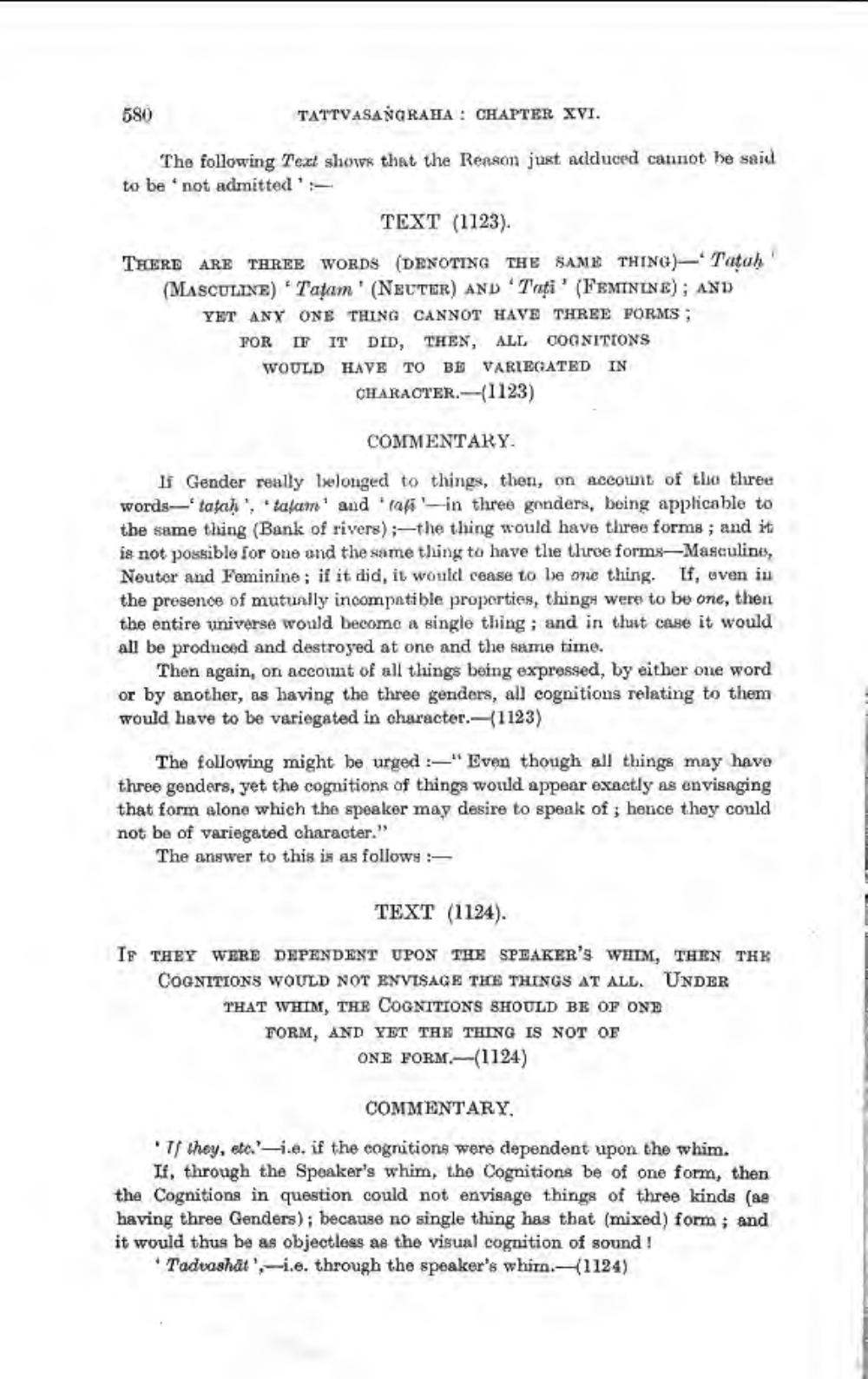________________
580
TATTVASANGRAHA : CHAPTER XVI.
The following Text shows that the Renson just adduced cannot be said to be * not admitted -
TEXT (1123).
THERE ARE THREE WORDS (DENOTING THE SAME THING) - Tatah (MASCULINE) Tatam' (NEUTER) AND 'Tati' (FEMININE); AND YET ANY ONE THING CANNOT HAVE THREE FORMS; FOR IT IT DID, THEN, ALL COGNITIONS WOULD HAVE TO BE VARIEGATED IN
CHARACTER.--(1123)
COMMENTARY
If Gender really belonged to things, then, on account of the three words- tatah, lalamandra in three gonders, being applicable to the same thing (Bank of rivers); the thing would have three forms; and it is not possible for one and the same thing to have the three forms-Masculines, Neuter and Feminine; if it did, it would cease to be one thing. If, uven in the presence of mutually incompatible properties, thing, were to be one, then the entire universe would become a single thing; and in that case it would all be produced and destroyed at one and the same time.
Then again, on accomt of all things being expressed, by either one word or by another, as having the three genders, all cognitions relating to them would have to be variegated in character. (1123)
The following might be urged :-"Even though all things may have three genders, yet the cognitions of things would appear exactly as envisaging that form alone which the speaker may desire to speak of ; hence they conld not be of variegated character."
The answer to this is as follows:
TEXT (1124).
IF THEY WERE DEPENDENT UPON THE SPEAKER'S WEIM, THEN THE COGNITIONS WOULD NOT ENVISAGE THB THINGS AT ALL. UNDER
THAT WHIM, THE COGNITIONS SHOULD BE OF OND TORM, AND YET THE THING IS NOT OF
ONE FORM.-(1124)
COMMENTARY
'T/ they, etc.'-.e. if the cognitions were dependent upon the whim.
If, through the Speaker's whim, the Cognitions be of one form, then the Cognitions in question could not envisage things of three kinds (ae having three Genders); because no single thing has that (mixed) form; and it would thus be as objectlees as the visual cognition of sound!
Tadvashat':-.e. through the speaker's whirn (1124)




